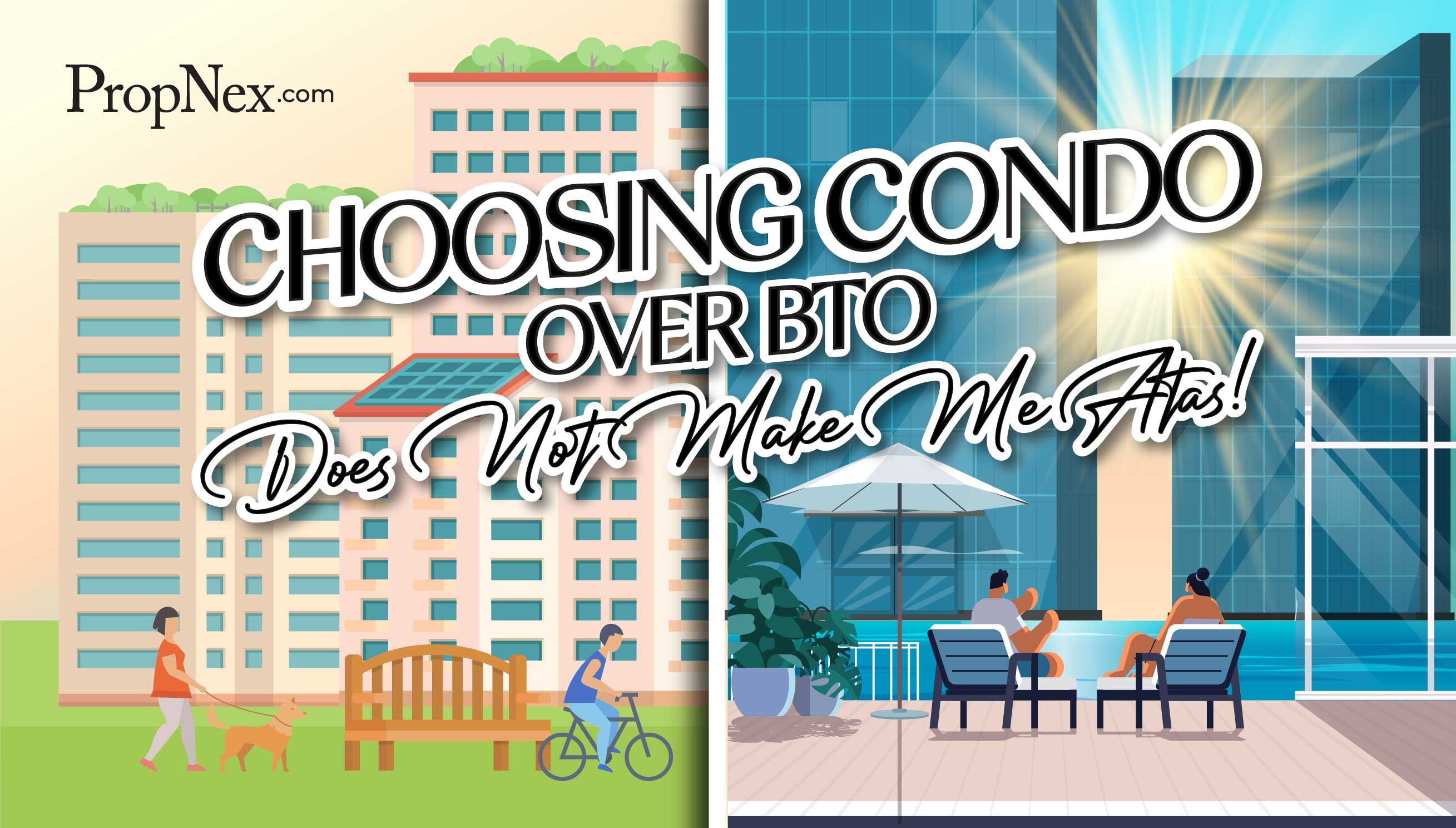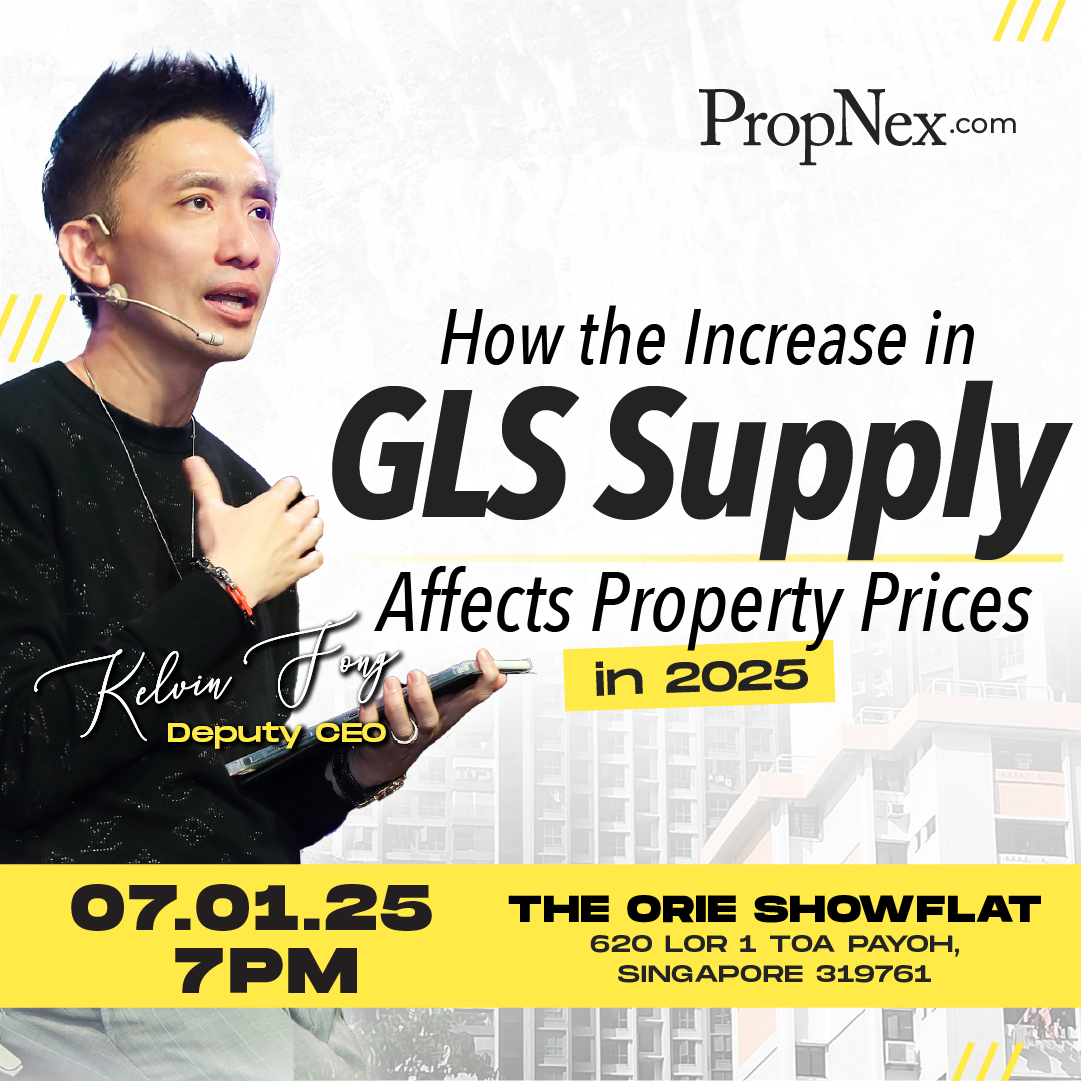
Jerome Ng
Research Writer

Nobody can deny the fact that property prices these days are incredibly insane.
In fact, according to URA, the housing price index in Singapore has risen from 201.50 points in the 4th quarter of 2023 to 204.50 points in the 1st quarter of 2024, reaching an all-time high! The housing price index measures the changes in the transaction of property prices.
This is a far-cry from the housing price index of 8.9 points in 1975, showing how the resale housing market has become a prime commodity over the course of history. Of course, dwelling over these figures will not change this harsh reality. However, knowing how it works will help us determine our course of action in the future, which I will share what is my personal plan below. Several factors can contribute to the exponential growth in the property market, such as:
- Evolving demographics: Demographics reflect the population in Singapore, such as population growth, migration patterns, affluence, gender, race, and age. For example, the baby boomer generation consisting of individuals born from 1945 to 1964 could be the contributing factor to the sharp increase in property demand from 1987 to 1996. An individual born in 1964 would be 23-year-old in 1987, which would be an appropriate time to consider getting a property.
- Reduced interest rates: If we look at the graph above, another significant increase in the property market is from 2017 to 2023, which was when COVID happened. During the pandemic, the mortgage interest rates were reduced to near-zero levels for the 1-month and 3-month Singapore Interbank Offered Rate (SIBOR), respectively. The current rate as at 31 May 2024 is 3.91% and 4.05%, respectively. The significant drop in interest rates during the pandemic created a wave of homeowners refinancing their homes, creating increased demand for properties, which then raises the overall market values.
- State of the economy: Another factor that affects the growth of the property market is the state of the economy. When the economy is bad, the overall property market is affected. One good example is the great recession from 2008 to 2009. We can see that there is a sharp decline in the property market during that period.
- Government subsidies and policies: Legislation can impact property prices and demand significantly. For example, implementing cooling measures, such as ABSD, SSD, and LTV. On May 15, 1996, the Singapore government surprised the nation by implementing a range of cooling measures to control the exponential increase in private property prices then, causing the sharp decline that we can see in the graph above.
- Cultural factors: Cultural factors can significantly influence the property market. For example, in Asian cultures, owning property is perceived as a sign of stability and success. This cultural attitude leads to increased investment in real estate as individuals strive to achieve this status, fueling market growth. Additionally, Singaporeans have a cultural preference for homeownership over renting, contributing to sustained demand for property purchases, as people save and invest heavily in real estate.
- Geographical limits: As a small island nation with limited land, our government mitigates land scarcity with strict policies and land reclamation projects. However, demand often outpaces supply, jacking up property prices significantly. Additionally, we do not have to migrate from state to state for work unlike our bigger counterparts. As such, homeownership seems more practical than renting.
- CPF fundings: The CPF system mandates that regular contributions must be made from both employers and employees, creating a steady accumulation of funds. The use of CPF savings allows Singaporeans to own properties, including servicing their mortgage loans and making down payments. This increases their purchasing power, enabling Singaporeans to purchase homes that they might not afford otherwise. Policy and cultural emphasis, supported by the CPF system, drives continuous demand for homeownership. As more people are motivated to own homes, the property market experiences sustained growth.
As a 32-year-old single millennial, homeownership is a milestone that I hope to achieve in the next couple of years. However, like many other millennials, the harsh reality makes it seem impossible to accomplish.
Regardless, here are my thoughts on why I am going for a condo instead of a HDB. Just to be clear, I am not saying that condos are better than HDBs. This article is purely my opinion and my point-of-view.
Why condos over HDBs?
I am fortunate to have lived in Australia for a couple of years and have enjoyed the perks of living away from my family. Since coming back to Singapore because of the pandemic, I have transitioned back to living with my parents. While I did have thoughts (and still have) about moving out on my own, the rental prices made me think twice. However, as my age hits me, the desire to own my own home is getting stronger. It does not help that my peers around me are also talking about owning a house in Singapore.
If you are in a similar life stage and are considering a condo or a HDB, then what I am about to share might be the defining moment for you. Whether your purchase is a good investment or not depends on what you intend to use your property for, such as renting out or your primary residence.
Generating passive income by renting out your home is a popular decision. With the new BTO project classifications, there is an MOP period of five and ten years, depending on the type of HDB apartment you purchase. However, if you are investing in a condo to rent out, you do not have to fulfil the MOP before selling or renting. The presence of additional amenities, such as swimming pools, tennis courts, bbq facilities, and gyms, allow you to also command better rental prices.
If you are taking a home loan to purchase your first condo for living in, you are building equity with each mortgage payment. Apart from saving monthly expenses that would have gone to rent, a condo is a much more affordable private housing than a landed property.
At the end of the day, most Singaporeans, especially those my age, will not stick at the same location permanently. Whether they upgrade to another condo or right-size to an HDB apartment, they will be looking at the potential resale value. While there has been a recent surge in the number of million-dollar resale HDBs, we can see from the graph below that condos still fare better in terms of value appreciation. That being said, the gap is closing, with HDB catching up in terms of value appreciation.
Source: PropNex Investment Suite
So, does that mean condos trump HDBs?
It really depends on what you are looking for in a home and what you are able to afford comfortably. Never spend beyond your means.
If the privacy, facilities, and services that come with the purchase of your condo unit is what you want, then they are perfect investment properties. However, you might have to sacrifice space, especially in newer projects. On the other hand, HDB units generally come with larger living spaces. However, there are MOP restrictions.
That being said, if you are seriously considering owning a private residence but do not want to fork out the premium cost, then you might want to consider an EC. Not only do you enjoy condo facilities, but you also are able to enjoy some HDB grants. However, there is still a MOP of five years before you are able to sell it. Basically, ECs follow standard HDB rules for the initial 10 years, becoming fully privatised in the 11th year.
Private condos can be found anywhere in Singapore. However ECs are usually located in OCRs instead of RCRs and CCRs. While some EC projects may not be as centrally located as most private condo projects, they are still strategically placed near public transport and essential amenities, though often not as close as private condos. This is because the Singapore government designates these areas to support urban development and spread. That being said, these areas are also constantly being developed, improving accessibility and value. Even then with private condos, there is still the need to consider between leasehold and freehold.
For example, a private condo such as Marina One Residences is located smack within the CBD, which is a CCR. It definitely offers immediate access to lots of business, shopping, and transport facilities. On the other hand, an EC such as Sol Acres, located in Choa Chu Kang, is located in the OCR. While it may sound less accessible, it is with developing amenities and infrastructure.
While it is true that condos are more expensive and smaller than HDBs, I personally like the idea of having the resort feel - swimming and using the gym after work or having friends over for a barbecue sesh during the weekends. Owning a condo becomes more than just a status, it becomes part of a sustainable lifestyle that goes beyond working and living in Singapore.
At the end of the day, both condos and HDBs offer very different appeal that targets various individuals. It all boils down to 1) Your affordability 2) Needs 3) Lifestyle 4) Preferences. Do not look left and right and be confused by what society may say is the best course of action.
Engaging a professional to guide you in your homeownership journey is the way to not make unnecessary errors. If you can afford it, and you might be surprised by how affordable condos can be, a condo is an ideal investment commodity. However, if not, there is no rush. You can always purchase one down the road.
Views expressed in this article belong to the writer(s) and do not reflect PropNex's position.









